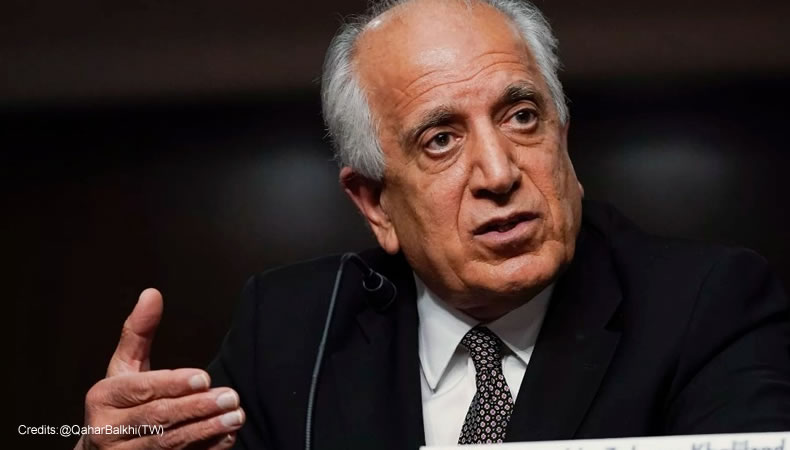Turkey threatens Morocco by supporting Sahrawi separatist groups


In 2002-5 and 2018-2021, Khalilzad was heavily criticized for his leading role and interference in local politics. However, being of Afghan origin, Khalilzad has always easily managed to fit into the local political dynamics. In 2002-5, his influence was crucial in keeping the complex Afghan political scene under Washington’s control. Still, the question remains of how healthy it was for the Afghan state to have such a decisive role for the ambassador of a foreign power.
Indeed, today in Khalilzad, few admirers remain for his negotiating efforts, which began in September 2018. Among the Afghans, especially the supporters of the defunct Islamic Republic, Khalilzad has many enemies: not only among Ghani’s supporters, who have fought him since the first moment but also among the supporters of the political opposition to Ghani, the so-called ex mujahideen (Karzai, Abdullah and many others).
They had bet on Khalilzad and believed in his promises of an interim government, which would expel the hated Ghani from the political scene and pave the way for a compromise and a coalition government with the Taliban.
Instead, there is no trace of the compromise, and the coalition government and Khalizad himself, in announcing his resignation, implicitly mentioned this failure in his resignation letter as the cause of his abandonmein Libya is under the Turkish and Muslim Brotherhood’s political control.
Ankara will use the Morocco’s desire to obtain recognition of its sovereignty over the Sahara. In 1975, Spain abandoned its colonies in North Africa, with the exception of the territories of Ceuta and Melilla. Morocco stepped in to claim sovereignty over Western Sahara, a territory nearly its size on its southern border. The Polisario, a politico-military organisation first created to fight off Spain, opposed Morocco’s claim. The Sahrawi Arab Democratic Republic (SADR) was proclaimed in 1976 by the Polisario to embody its independence project. While the SADR is not an internationally recognised state, it continues to symbolically represent the Sahrawis’ self-determination endeavour.
King Mohammed VI should be afraid of Turkey’s ambitions in Moroccan desert in exchange for supporting the Moroccan political offering as Erdogan is working to blackmail Morocco if they latter refuses to expand the scope of Turkish activity in the desert. This was made clear when, at the end of 2019,a state Turkish television channel broadcasted an interview with Sahrawi separatist Aminatou Haidar, dubbed as the “Ghandi of Western Sahara.”
Morocco considers Western Sahara an integral part of the kingdom and has offered autonomy, but not an independence referendum.Moroccan media lashed out at Turkey for using Haidar as blackmail few days after Morocco’s Minister of Industry, Trade, Investment and the Digital Economy Moulay Hafid Elalamy announced that the North African kingdom called for a readjustment of the terms of the Free Trade Agreement (FTA) which was signed between Morocco and Turkey in 2004 but has not been activated until 2016.
Recep Tayyip Erdogan, blackmailing or trying to bend Morocco’s will by titling it on the issue of its territorial integrity, tries to leverage the Muslim brotherhood, circulating through the media those few Moroccans in adoration of some Turkish leaders. This explains the arrest of Suleiman Al-Risuni, nephew of Ahmad al-Risuni, head of the International Council of Muslim Scholars, and the possibility of diminishing Brotherhood influence in Morocco.




